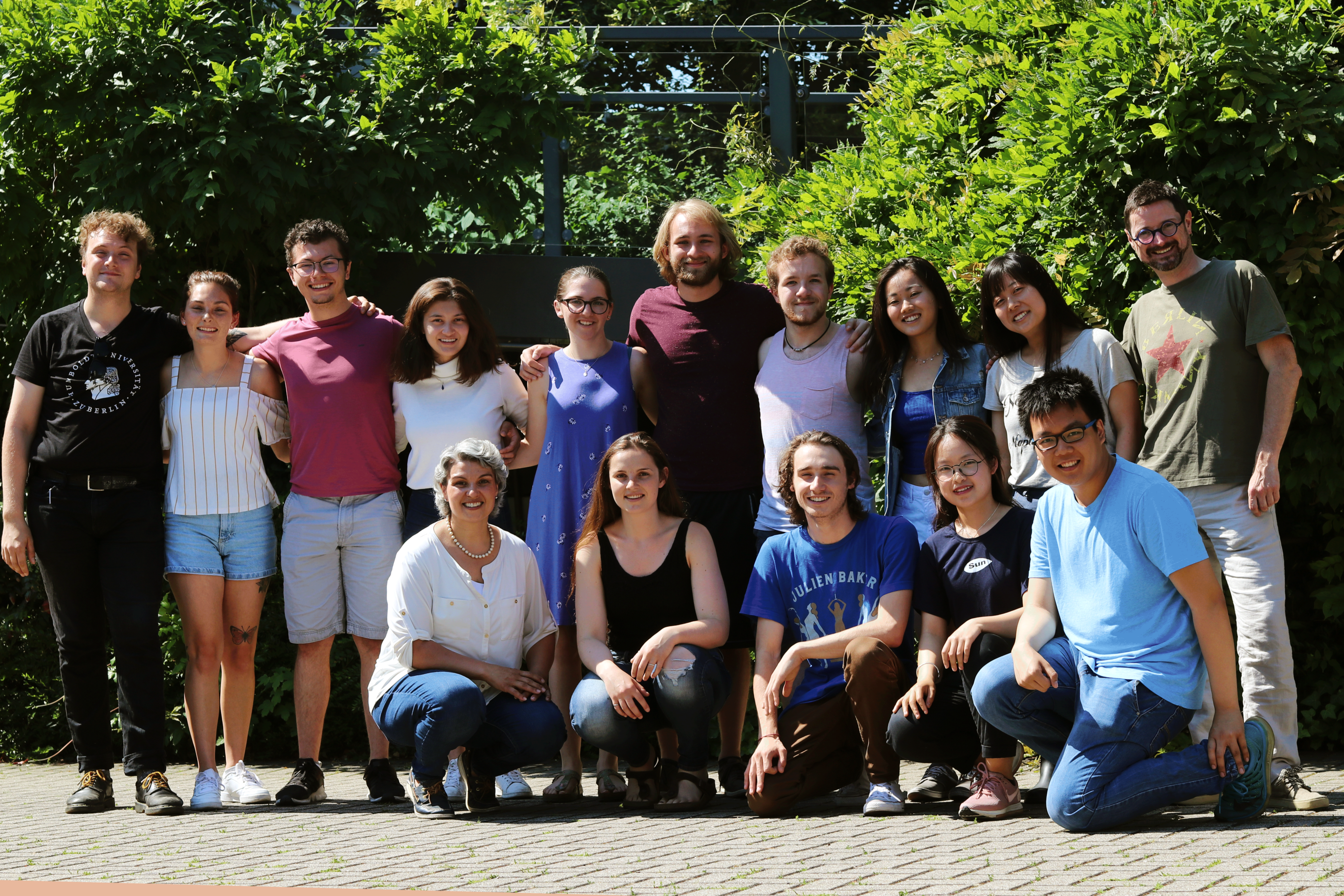Canadian Summer School in Germany (CSSG)

WCGS Stork Award winners from the 2019 Canadian Summer School in Germany (CSSG) program.
Back row, left to right: Nathan Deschamps, Hannah Peter, Nathaniel Andre-Peirano, Katrina Cooney, Erike Hallemann, Adam Gemmink, Cole Murray, Makoto Bono, Shihori Kawamura, Dr. John Plews (CSSG Director)
Front row, left to right: Christa Bezooyen, Kelsey Wiggers, Braedon Pauzé, Skynye Wang, Young Yu
Institutional Association: St. Mary's University, Halifax
Director: Prof. John Plews
Program Website: About the Program
Program Description:The Canadian Summer School in Germany (CSSG) offers university-level language and culture studies in Kassel in a unique and intensive German immersion program. The CSSG is organized at Saint Mary's University under the auspices of the Canadian Association of University Teachers of German and offers courses at almost beginner, intermediate, and advanced levels as well as a professional development course for graduate teaching assistants and community service-learning courses. For 7 weeks, students participate in a full course (approximately 85 hours of classroom instruction), stay with a host family, and take part in numerous additional activities: presentations at various museums, visits to theatres and operas, sporting events, excursions to cities with cultural and historical significance, and a four-day trip to Berlin. The CSSG also offers a Tandem Partner Project, whereby Canadian students are matched with students from various disciplines at the University of Kassel to improve speaking skills in the students' respective languages and share experiences about student life.
How does this program benefit students?The main feature of the program is students' rapid progress in linguistic skills enhanced mainly by the fact that they are immersed in and interacting directly with German people, life, and culture. Students develop their comprehension, writing, reading, and speaking skills to specific German proficiency levels through classroom instruction, excursions, and immersion experience. Improvement in overall fluency, enhanced knowledge of the culture of the German-speaking countries, and review of key grammatical concepts are integral to all courses which are all taught in German. The courses are centred on linguistic proficiency, interpersonal communication, and intercultural communication through task-based language instruction, personal experience, literary texts, and lectures. The courses focus on student-centred, communicative learning, encouraging students to interact spontaneously and meaningfully in German. Students further refine skills in reading, listening, speaking, and writing through a variety of texts and communicative opportunities. Strategies to enhance language learning skills are integral to the courses.
What have students enjoyed most about the program?It depends. For some, it is the opportunity to live with a German family; for others, it is the highly attentive, personalized, and interactive language instruction. Still others appreciate the experience of living in Germany in an integrated day-to-day way, instead of being just a tourist; others most enjoy the many excursions and cultural activities as well as the sense of belonging to a cohort of peers. Many are grateful for all the arrangements made for them so that there are both rigorous academics and a full program of cultural events and experiences. All the students always express how grateful they are for the friendships they form with their peers, their host families, their tandem partners, and even their instructors!
What's your favourite part of this program? My favourite part of the program is seeing how all the students develop in terms of linguistic abilities and cultural or intercultural competence. For some, this happens quite quickly and seemingly quite easily: a light goes on as they realize the opportunities before them, begin to take everything in, and grow in confidence. For others, this comes as a result of commitment, attention, and perseverance as small daily learning victories gradually accumulate into a feeling of overall personal accomplishment. But I also enjoy two other aspects a lot. There is always a student who would never have imagined going to the Berlin philharmonic or a Bundesliga match or dancing with folk dancers or giving a memorized academic presentation to peers in German or singing in German on stage for an audience; knowing that the program creates such lifelong memories is very rewarding. Finally, working with a team of such hardworking colleagues in teaching the courses and delivering the program is always an inspiration and a highlight of my professional year.
A lot of universities in Canada are promoting interdisciplinary learning. In what ways does your program support that goal?The CSSG is not an interdisciplinary program per se. Its learning goals are clearly focused on language acquisition, interpersonal communication, and intercultural communication and competence. However, the participating students are from all disciplines and faculties across the university and so create a highly interdisciplinary peer learning group. This has a positive effect on the sharing and development of learning styles and strategies among program participants. Also, the tandem project brings together CSSG students and local students across several disciplines.
Do you have any recommendations for other institutions looking to create a similar program?I recommend that all Canadian institutions seriously consider supporting their students who choose to take part in the CSSG given the international, intercultural, and cross-peer learning that occurs in the program. Should other institutions be developing their own programs, I would encourage them to contact me so that we can possibly arrange for students to first come to the CSSG and then take advantage of their program without needing to purchase another flight. Students could then gain a larger number of credits and make excellent progress through their degree.